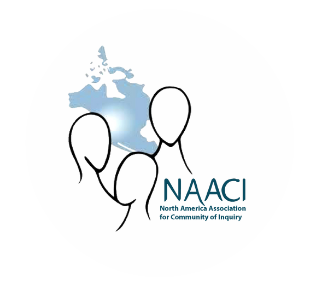Analytic Teaching and Philosophical Praxis is pleased to announce publication of its newest issue. The articles that make up the current issue of volume 42. no. 1. This offers a series of articles by some of the most well known and respected scholars and practitioners in “P4C” from around the world.
Current Issue
Volume 43, Issue 1 of Analytic Teaching and Philosophical Praxis. [April 2023]
Analytic Teaching and Philosophical Praxis is an open-access peer-reviewed journal covering the philosophical and ethical implications of education. We also invite you to submit articles related to the philosophy of education for upcoming issues.
Editor’s Welcome by Jason Howard
“Thinking as Method” by Philip Cam
“From Neutrality to Intentionality: Notes for a Philosophy of Liberation for/with Children” by Erick J. Padilla Rosas
“The Impact of Philosophy for Children (P4C) on Middle School Students’ Empathy, Perspective-Taking, and Autonomy: Preliminary Outcomes”by Mahboubeh Asgari, Jenna Whitehead, Kimberly A. Schonert-Reichl, and Barbara Weber
“Adult Picture Books as Liminal Spaces: Exploring Some Inventive Invitations to Philosophical Reflection” by Wendy Turgeon
“Book Review of The Ethics Bowl Way: Answering Questions, Questioning Answers, and Creating Ethical Communities” by Richard Morehouse
Call For Papers
Call for papers on the theme: The Politization of Education (submission deadline September 1, 2023)
The journal of Analytic Teaching and Philosophical Praxis (formerly Analytic Teaching) seeks article submissions that explore the pervasive intrusion of political concerns across the landscape of education, from elementary school classrooms to college campuses. Although politics has always shaped our educational institutions and policies, responsible pedagogical practice once worked to limit the explicit politicization of the classroom. Is such neutrality even possible in our current climate, or should it be?
Possible topics for consideration include but are not limited to:
- Is Philosophy for/with Children (P4wC) politically neutral? Should P4wC be politically neutral?
- Can education be separated from politics?
- Can concepts in political philosophy be explored without creating political polarization or alienation?
- How is the political and politics best defined?
- How much authority should regulatory agencies have on the content of education?
- Can a liberal arts education be politically neutral?
- Should teachers try and limit the intrusion of political concerns in their classroom?
- How do private educational institutions balance their larger religious/ideological commitments?
- How should one deal with political polarization in the classroom or across campus?
- Can a well-rounded science education (or history or religious studies or women’s literature, etc.,) be politically neutral?
- What is the ethical responsibility of educators and administrators to the overt politicization of education?
Direct submissions to: Dr. Jason J. Howard, Editor, Analytic Teaching and Philosophical Praxis, email: jjhoward [at] viterbo [dot] edu (under the subject heading ‘2023 CFP’)
Submissions should follow a standardized reference format (Chicago manual of style- format references as footnotes or APA or MLA). Articles should be approximately 4000-8000 words, emailed as a word document or RTF, and prepared for ‘blind-review’ (with author’s name and institutional affiliation appearing on a separate page).
The deadline for article submissions is September 1st, 2023. Accepted articles will appear in the fall (2023) volume of Analytic Teaching and Philosophical Praxis.Analytic Teaching and Philosophical Praxis (AT&PP) is an online, open access, peer-reviewed, academic journal published out of Viterbo University (La Crosse, WI) dedicated to exploring the importance of philosophy for K-12 education and the larger political, ethical and educational implications/responsibilities of the discipline of Philosophy. It can be accessed at https://journal.viterbo.edu/index.php/atpp
Submissions from Black, Indigenous and People of Color (BIPOC) individuals, members of the LGBTQ+ and non-binary community, and others whose voices have been previously silenced due to their membership in marginalized communities are strongly encouraged..
